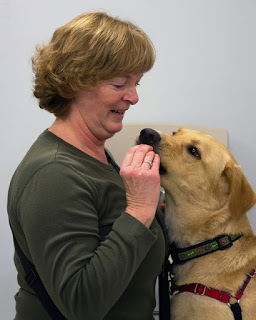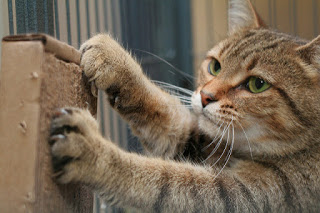March 23, 2017
Is a Great Pet Born or Made?

Pets typically require formal or informal training.
We in animal welfare often talk about “Disney” dogs. Disney dogs, or cats for that matter, never pee on the carpet, don’t chew your shoes, don’t need you to exercise them. They don’t need a vet, or a groomer, and they understand anything that you calmly and rationally explain to them — or better yet, understand what you want completely intuitively. Of course, we aren’t referring to a real dog or cat; we are referring to some people’s expectation of a pet — an unrealistic expectation, and a damaging one at that.
It is damaging because we know that if someone expects a Disney pet, they are going to be disappointed, they will not bond with the pet, and there is a good chance she will end up here, surrendered to the care of the OHS.

The OHS has developed behaviour seminars for cats and dogs.
In both animals and humans, there is controversy about “nature versus nurture.” That is, how much of what we are is a result of genetics or upbringing? Without opening that debate up too far, I think it is fair to say that there is a good dose of both in us and in our animal companions. I have often been impressed with our staff’s dogs. They are generally fantastic dogs. (I don’t often meet their cats) Over the years, I have often thought they must have excellent eyes for selecting dogs. This is likely true to an extent, but most also invest heavily in formal and informal training to make great dogs.
So, you may not have a perfect dog or cat, but the OHS has developed several dog obedience programs and dog and cat behaviour seminars, Don’t Blame the Cat and Don’t Blame the Dog for you. The Disney pet may not exist, but some investment of time and effort get at least as close as our staff have.
Bruce Roney
Executive Director
